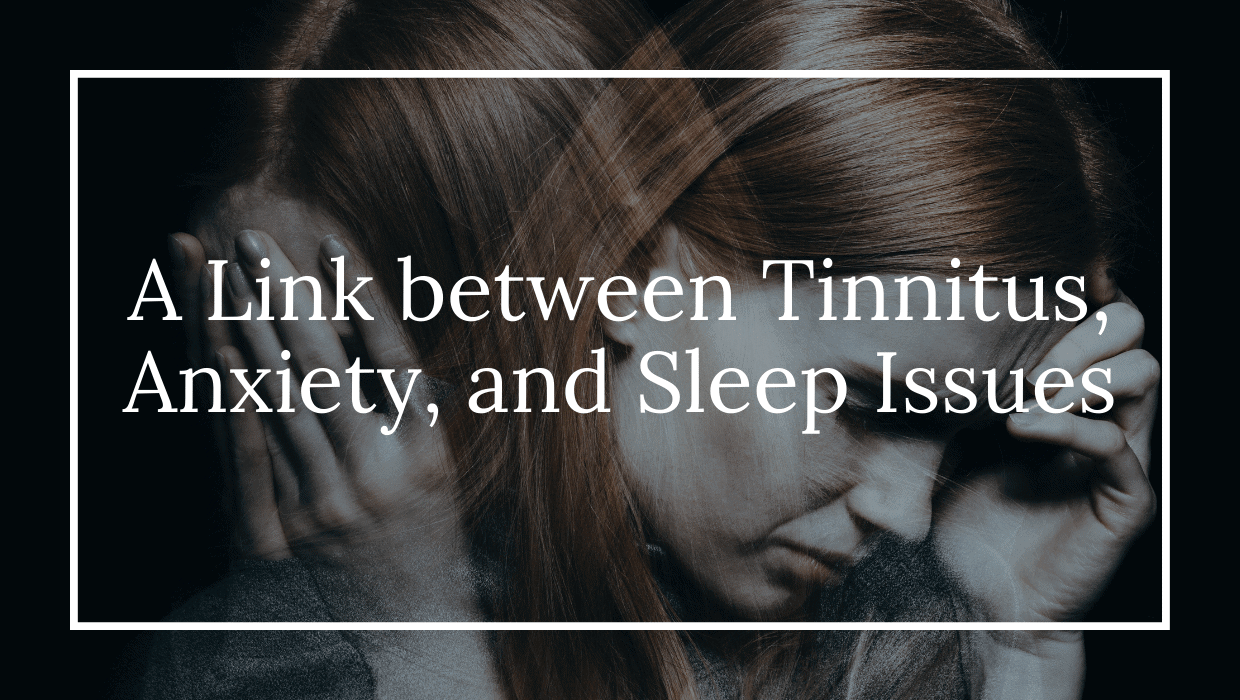Tinnitus is the experience of hearing a sound that is most noticeable in quieter settings. People commonly describe this sound as a buzzing, ringing, clicking, humming like noise that only you can hear.
According to the Hearing Health Foundation, at least 10% of people in the U.S. are regularly impacted by tinnitus and 16 million people seek medical attention. Tinnitus can be mild or severe and disrupt your ability to navigate your daily activities with ease. It can also contribute to anxiety and the development of sleep issues.
Causes of Tinnitus
Tinnitus is usually a symptom of an underlying health condition. Common causes are:
- Hearing Loss: which is the most common cause, estimated at nearly 90%. Hearing loss is a chronic medical condition that impacts over 40 million people in the U.S. Impaired hearing can be caused by existing medical conditions (hypertension, cardiovascular disease, diabetes etc.), aging, genetic history and environmental exposure to loud noise.
- Exposure to Loud Noise: absorption of loud noise can cause short-term tinnitus or long-term damage to hearing. We can be regularly exposed to loud noise at concerts sporting events, work, using electronic devices etc. Loud noise can damage the hair cells in the inner ear which are responsible for translating soundwaves into electrical signals for the brain to process. Loud noise can cause hair cells to lose sensitivity and the impact can be short-term or, if loud noise is constantly absorbed, it can lead to permanent damage. Tinnitus is a common symptom caused by exposure to loud noise.
- Earwax Buildup: the accumulation of earwax in the ear canal can increase bacteria, causing irritation or infection.
Tinnitus can also be caused by head and neck injuries. This symptom can be experienced chronically and impact overall health in a variety of ways.
Tinnitus, Anxiety & Sleep Issues
Tinnitus can be infrequent or constant which creates significant irritation and can even be debilitating. Experiencing this noise regularly can impact your ability to do even the most basic activities: have a conversation, watch television, and complete a work task. This can produce anxiety which can also lead to you focusing on the tinnitus even more, heightening the noise.
Increased stress, anxiety, and focus on tinnitus can contribute to sleep issues. In a study published in 2019, researchers found that nearly 70% of people with tinnitus have poor sleep quality. The sleep disorder that is more commonly associated with tinnitus is insomnia. Insomnia makes it difficult to fall and/or stay asleep, restricting the duration and quality of sleep one receives. This creates a range of symptoms including: lack of energy, increased irritability, difficulty concentrating, grogginess etc. Fortunately, there are useful ways to alleviate tinnitus!
Treating Tinnitus
The first step to address tinnitus is to schedule an appointment to have your hearing assessed. Conducted by a hearing healthcare specialist, hearing tests measure your hearing ability in both ears. This determines any impairment, the degree, and specific type of hearing loss that may be triggering your tinnitus.
There are effective ways that hearing loss is treated, the most common treatment is hearing aids. These electronic devices are designed to absorb, process, and amplify sound; increasing one’s ability to hear. Treating hearing loss has numerous benefits including: alleviates symptoms (including tinnitus), strengthens communication, improves relationships, and reduces risk of developing other medical conditions.
In addition to treating hearing loss, there are other useful ways that tinnitus can be managed. A few tips include:
- Alleviate Stress: reducing stress and finding ways to relax can provide relief. You can try meditation, yoga, or other calming activities.
- Use Ambient Noise: using ambient noise – playing soft music, turning on the TV, using a white noise machine etc.- can mask the tinnitus.
- Protect Hearing: reducing the impact of loud noise can minimize tinnitus. You can reduce the amount of loud noise you absorb by protecting your hearing using headphones, earmuffs, earplugs etc. which decrease your exposure to loud noise.
- More Sleep: Tinnitus can impact the quality of your sleep which then can worsen your tinnitus. Try and break this cycle by actively creating an environment that helps you sleep well (adjust lights, use essential oils, comfortable bed and pillows etc.).
If you’ve been struggling with tinnitus or other hearing related issues, we’re here to help! Contact us today to schedule an appointment for a consultation.

